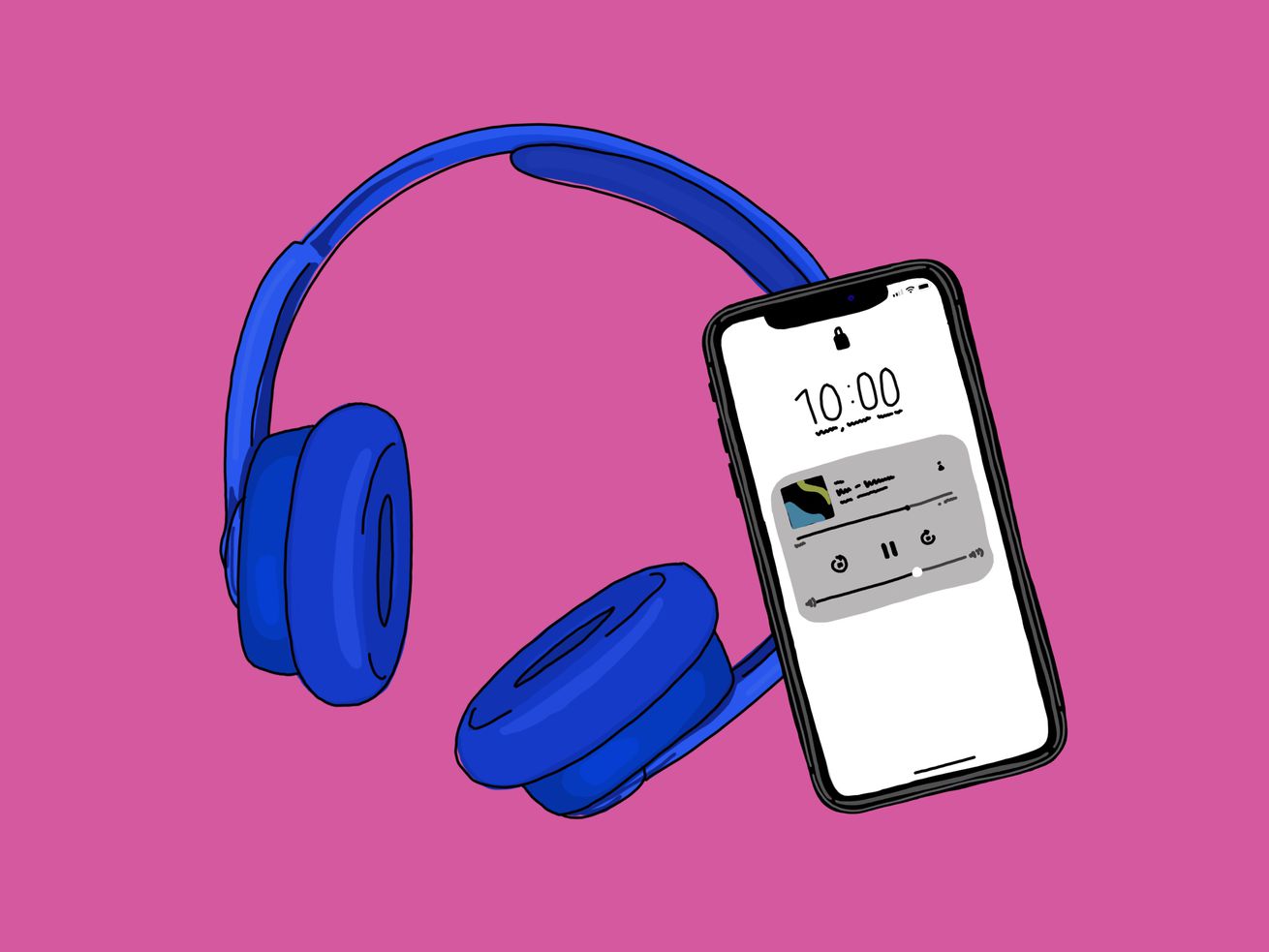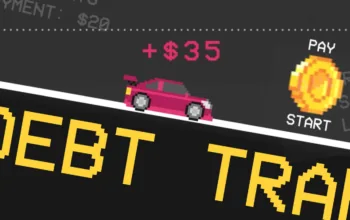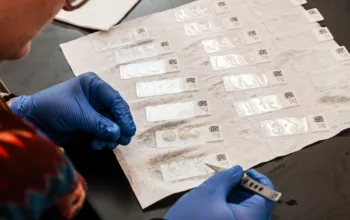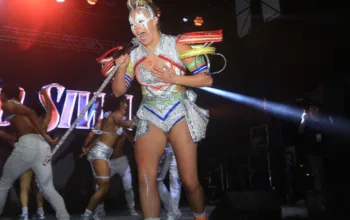After losing my ability to read for nearly five years, I needed a way to ease back into books.
Not long after I gave birth to my second child at age 40, I lost my ability to read. I don’t mean literally — I could still look at a sentence and know what it meant. I could read a menu. I could, unfortunately, still suffer through The Big Book of Paw Patrol on demand.
But within the space of a year, I could no longer find my way to the end of a novel or a lengthy article. Anything more complex than a children’s book left my brain spinning in neutral. No matter the genre, no matter the time of day, the sentences I read and re-read remained fragments that I could not assemble into a comprehensible whole.
I began carrying a stack of books with me from room to room of our rowhouse, shuffling between options with growing desperation, searching for an opening in one of them. “Brain fog” — as if a light mist has temporarily settled on my brow — is too benign a phrase for the suffocating powerlessness of watching your cognition dissolve in real time. Every so often the cloud lifted to allow me a tantalizing moment of clarity. But in the main, for the first time in decades, I was no longer a reader.
This development would be unsettling for anyone. For a professional writer and editor, it was horrifying. The written word was my currency, my passion, my source of confidence. I needed words to make a living. I needed them to make a life.
In the beginning, I assumed that the change was temporary, a holdover from the hormonal stupor of pregnancy. Or maybe it was sleep deprivation — surely the fatigue inherent in raising two small children would impact any parent’s focus. Those were both pieces of the puzzle, but it would be years before I solved it.
Instead, I was lost in my head. If I’d been grappling with a stabbing pain in my abdomen or loss of sight, I would have parked myself in a medical office and refused to budge without a diagnosis and treatment plan. But it wasn’t obvious to me that I had a physical ailment. Maybe I was losing my mind. Maybe I was lazy. Maybe, as one boss suggested during a particularly tense performance review, I just couldn’t hack working and raising small children at the same time. Looking around at all the other parents who held down demanding jobs, I worried that he was right.
One year became two and then slid into more. Terror rose in my throat every time I took on new editing work or writing assignments, knowing there was a decent chance I wouldn’t be able to deliver. I couldn’t tell anyone because I didn’t know what was going on or if it would ever end. I was petrified to say the words out loud, to raise the possibility that I might never work in my field again. With each job, each promise, I needed to believe that this time it would be different.
It never was. I blew through deadlines, ghosted editors, and lost jobs. Shame and depression ganged up on me, and I dropped out of the workforce altogether.
I would ordinarily turn to books for solace and distraction in a time of crisis. With two teachers for parents, I was born into a family of readers. We unwrapped books on Christmas mornings, but any occasion was an excuse for a new book. They showed up on Easter and Valentine’s Day, birthdays and the first day of school. My sister and I spent long summer afternoons in our backyard reading books from the public library under a tent our mom set up by pinning quilts to the clothesline.
At some point before school began again, the four of us would squeeze into our Plymouth Horizon to drive from Michigan to the New England coast, stopping at the Dartmouth Bookstore in Hanover, New Hampshire, to load up on books. Once we each had a stack from that 140-year-old institution, we continued on to rocky beaches, where we read until everyone had one or two books remaining for the drive home. I looked forward to those trips like other kids dream about Disney World. Devouring my favorite authors, powered by squirt cheese and Faygo grape pop, I could not imagine a more perfect life.
By contrast, this bookless existence was my nightmare. One day I realized that whole shelves in our house were filled with titles I had never read. Having reveled in the experience of reading Marilynne Robinson’s Gilead and Home when they came out, I bought the subsequent books in that series and now grieved the idea that I might never read them. I felt in my bones what author William Styron once wrote about his depression, that it made him fear that “I would never recapture a lucidity that was slipping away from me with terrifying speed.”
In hindsight, it is ridiculous that it took years of desperation and depression before I was finally willing to reconsider my absurd refusal to try audiobooks. I had always dismissed the format, snobbishly categorizing audiobook listeners as somehow a lesser class of book consumers. Audiobooks, my thinking went, were for people too lazy to read. They were a useful service for people who were visually impaired and they could be helpful in entertaining children on road trips. Audiobooks were emphatically not for me.
But as reading didn’t seem to be an option, it was time to get over myself. I purchased an Audible Premium subscription — which allows me one book each month — and tiptoed into the world of what I still anachronistically think of as “books on tape.”
My gateway listens were memoirs — Tara Westover’s Educated, Kiese Laymon’s Heavy, Maggie O’Farrell’s I Am, I Am, I Am — which allowed me to pretend a friend was simply telling me about her life. After a few months, I moved on to Strangers Drowning, Larissa MacFarquhar’s masterful chronicle of obsessive altruism, and felt a sense of accomplishment akin to making my way through several years’ worth of New Yorker back issues.
By the time I spent a weekend enthralled by Irish actor Andrew Scott’s reading of Dubliners — after a lifetime of avoiding James Joyce — I started to wonder why I’d ever spent much time straining my eyes with print.
Audiobooks weren’t just tolerable alternatives to wood-pulp-and-ink tomes. In many ways they actually expanded my enjoyment of books. Rather than listen curled up in an armchair, I could pop in earbuds, walk the mile from our house to Lake Michigan, and spend hours by the water with Colson Whitehead’s The Nickel Boys playing in my ears. There is an emotional heft to hearing Trevor Noah’s memoir in his own voice as he cycles through phrases in Xhosa, Zulu, Tswana, and other tribal languages that I would have lost on the page.
Native-speaking audio readers allowed me to more fully inhabit a writers’ world, making familiar Sri Lankan and Ugandan and Ethiopian names that I would have mangled in my head while reading. (I read the first two Harry Potter books before ever hearing the name “Hermione” and realizing that way I’d been pronouncing it was very different.) Likewise, hearing read aloud Anna Burns’ Milkman, with its experimental style and long, unbroken paragraphs, made the book infinitely more accessible and pleasurable. I loved how the musicality of language often seemed heightened when words were isolated for my ears alone.
Nearly five years after reading disappeared from my life, I was pleased to finally learn that I hadn’t lost my mind. I’d just unknowingly white-knuckled my way through menopause in my mid-40s, not realizing that brain fog and exhaustion can be common symptoms. By the time a doctor actually listened to me and ran a blood panel, there was virtually no estrogen left in my system. I immediately started hormone therapy.
The speed with which my mind cleared was astonishing. I needed more time to get past the fury and resentment of knowing I’d lost years of productivity and inadvertently gaslit myself.
When I felt ready to attempt an actual physical book again, I started with Tayari Jones’ An American Marriage, which sat atop the largest stack of optimistically purchased novels — and read until dawn. Closing the cover that next morning, I exhaled. And picked up another.
Now I’m reading book after book after book, sometimes feeling like Lucy and Ethel trying to keep pace in the chocolate factory. I’d forgotten the combined pleasure and wooziness of a reading hangover that comes from staying up far too late submerged in a book. Most weeks I juggle one book in print and another in audio, so I always have an excuse to leave the house for a long pandemic walk. My family members know to give me audio credits for birthdays. In 2021, I read 67 books, just a few years after I struggled to get to the end of one or two.
Modern medicine restored my concentration and banished the brain fog, but audiobooks were the first crucial phase of a regimen to regain my confidence and sense of identity. I pray that my ability to read is back for good, but whatever happens, I know that I need never again give up on books. (I am, however, switching over to Libro.fm, an audiobook service that supports local bookstores instead of the global Amazon megatron complex.)
These days, when I find myself lost in a book, it’s not because my brain is stuck or throwing up obstacles. I’m happily lost in a world of words and images and I do not need rescuing.
Amy Sullivan is a Chicago-based journalist who covers religion, politics, and culture.
Author: Amy Sullivan
Read More



